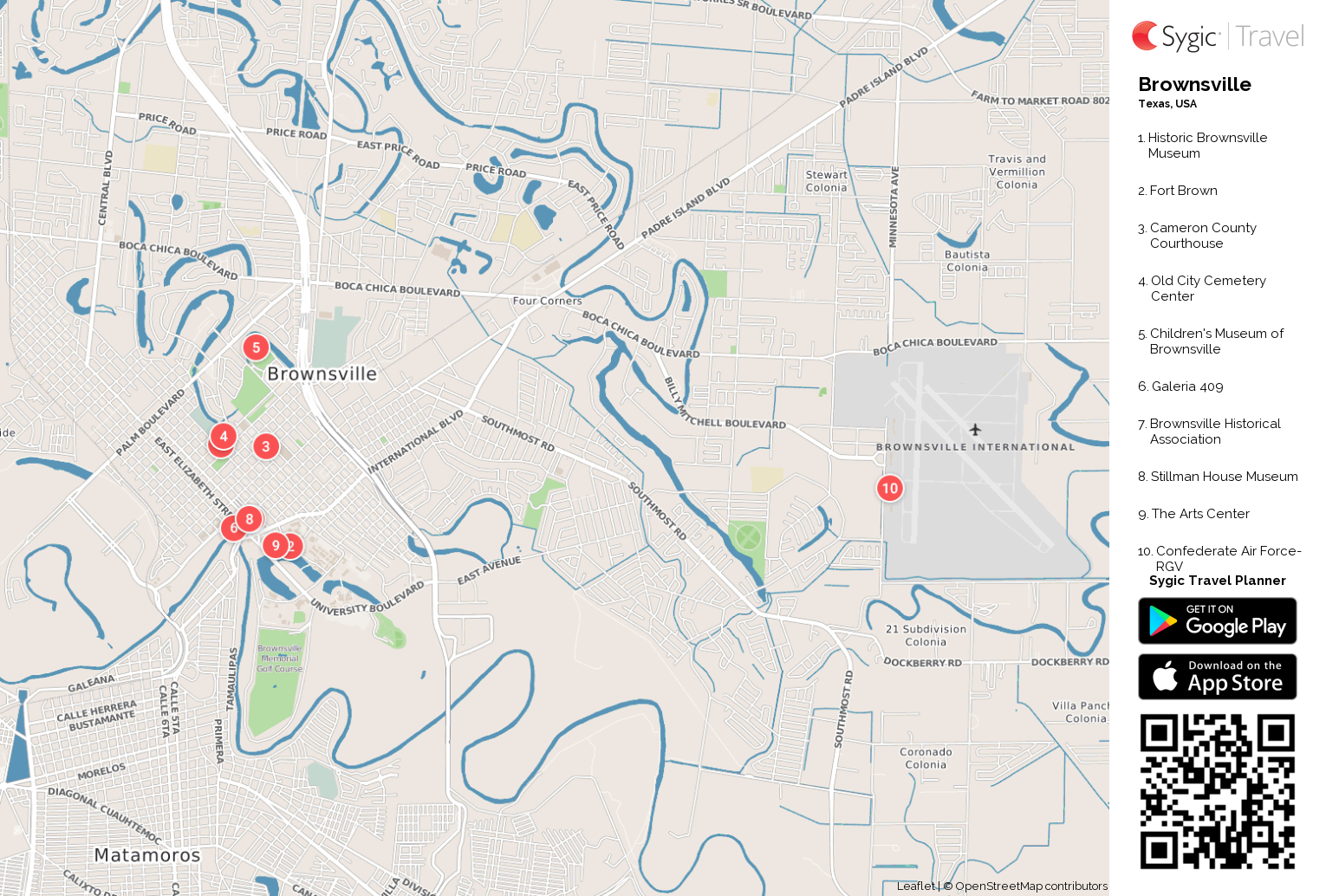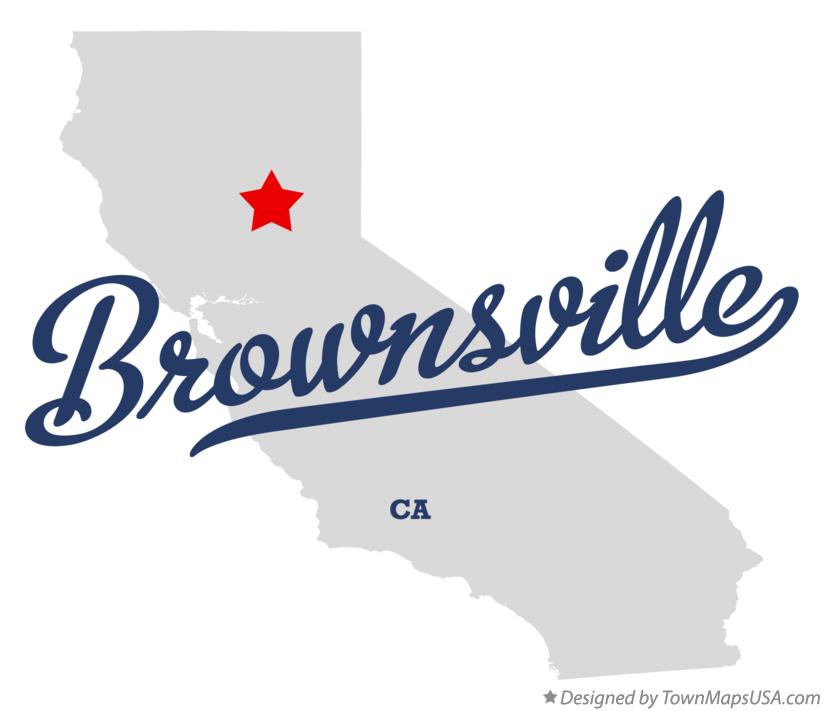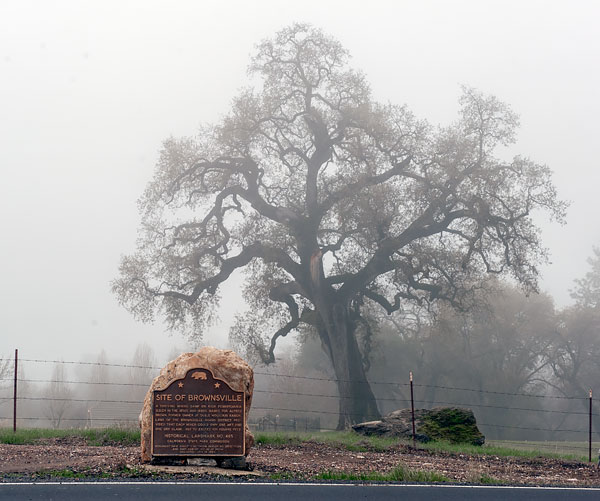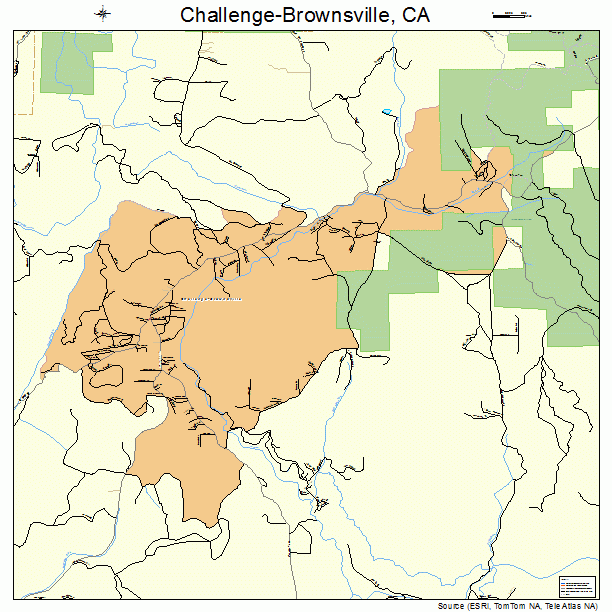Navigating Brownsville, California: A Comprehensive Guide To Its Map And Significance
Navigating Brownsville, California: A Comprehensive Guide to Its Map and Significance
Related Articles: Navigating Brownsville, California: A Comprehensive Guide to Its Map and Significance
Introduction
With enthusiasm, let’s navigate through the intriguing topic related to Navigating Brownsville, California: A Comprehensive Guide to Its Map and Significance. Let’s weave interesting information and offer fresh perspectives to the readers.
Table of Content
Navigating Brownsville, California: A Comprehensive Guide to Its Map and Significance

Brownsville, California, a charming and historic town nestled in Yuba County, holds a unique place in the state’s tapestry. Its map, a visual representation of its layout and surrounding landscape, serves as a crucial tool for understanding the town’s past, present, and future. This article delves into the significance of the Brownsville, California map, exploring its historical context, geographic features, and the role it plays in navigating the town and its surroundings.
Historical Significance
The Brownsville map is more than just a geographical representation; it is a window into the town’s rich history. Founded in the mid-19th century during the California Gold Rush, Brownsville was a bustling hub of activity. Its map reflects this era, showcasing the location of gold mines, trading posts, and the original town layout. The map reveals the town’s growth and evolution over time, highlighting key landmarks like the Brownsville Bridge, built in 1915, which played a vital role in connecting the town to neighboring communities.
Geographic Features
The Brownsville map provides a comprehensive overview of the town’s geography, showcasing its location within Yuba County and its proximity to the Yuba River. The map reveals the town’s topography, highlighting the rolling hills that surround it and the fertile valley that provides the foundation for its agricultural industry. The map also pinpoints key natural features, such as the Yuba River, which has been integral to the town’s history and continues to be a source of recreation and economic activity.
Navigational Importance
The Brownsville map is an invaluable tool for navigating the town and its surrounding areas. It clearly delineates streets, roads, and highways, allowing visitors and residents alike to easily find their way around. The map also indicates points of interest, such as parks, schools, libraries, and historical sites, making it a convenient guide for exploring the town’s attractions.
Economic and Social Significance
The Brownsville map holds economic and social significance by providing a visual representation of the town’s infrastructure and its interconnectedness with surrounding communities. It highlights the location of businesses, industries, and transportation hubs, demonstrating the town’s economic vitality. The map also reveals the location of community centers, parks, and recreational facilities, showcasing the town’s commitment to its residents’ social well-being.
Beyond the Map: Exploring Brownsville
While the Brownsville map provides a comprehensive overview of the town, it is only one aspect of its story. To truly understand Brownsville, one must explore its history, culture, and community. Visiting historical sites, attending local events, and engaging with the town’s residents offer a deeper understanding of the town’s character and its significance in the broader context of California.
FAQs
Q: What is the best way to obtain a map of Brownsville, California?
A: Several options exist for obtaining a map of Brownsville, California. The town’s website may offer downloadable maps, or physical maps can be found at local businesses, visitor centers, or through online retailers.
Q: What are some of the most notable historical landmarks in Brownsville?
A: Brownsville boasts several historical landmarks, including the Brownsville Bridge, the Brownsville Museum, and the historic Brownsville Cemetery. These sites offer a glimpse into the town’s rich past and its connection to the California Gold Rush.
Q: What are some of the best places to visit in Brownsville?
A: Brownsville offers a variety of attractions for visitors, including the Yuba River for recreation, the Brownsville Museum for history enthusiasts, and the town’s charming shops and restaurants.
Tips
Tip 1: When exploring Brownsville, consider visiting the Brownsville Museum to gain a deeper understanding of the town’s history and its connection to the California Gold Rush.
Tip 2: Take advantage of the town’s proximity to the Yuba River by engaging in recreational activities such as fishing, kayaking, or hiking.
Tip 3: Support local businesses by dining at the town’s restaurants, shopping at its unique stores, and participating in local events.
Conclusion
The Brownsville, California map is more than just a geographical representation; it is a valuable tool for understanding the town’s history, geography, and its place within the larger context of California. It serves as a guide for navigating the town, exploring its attractions, and connecting with its vibrant community. By understanding the map’s significance, residents and visitors alike can gain a deeper appreciation for Brownsville’s unique charm and its enduring legacy.







Closure
Thus, we hope this article has provided valuable insights into Navigating Brownsville, California: A Comprehensive Guide to Its Map and Significance. We appreciate your attention to our article. See you in our next article!